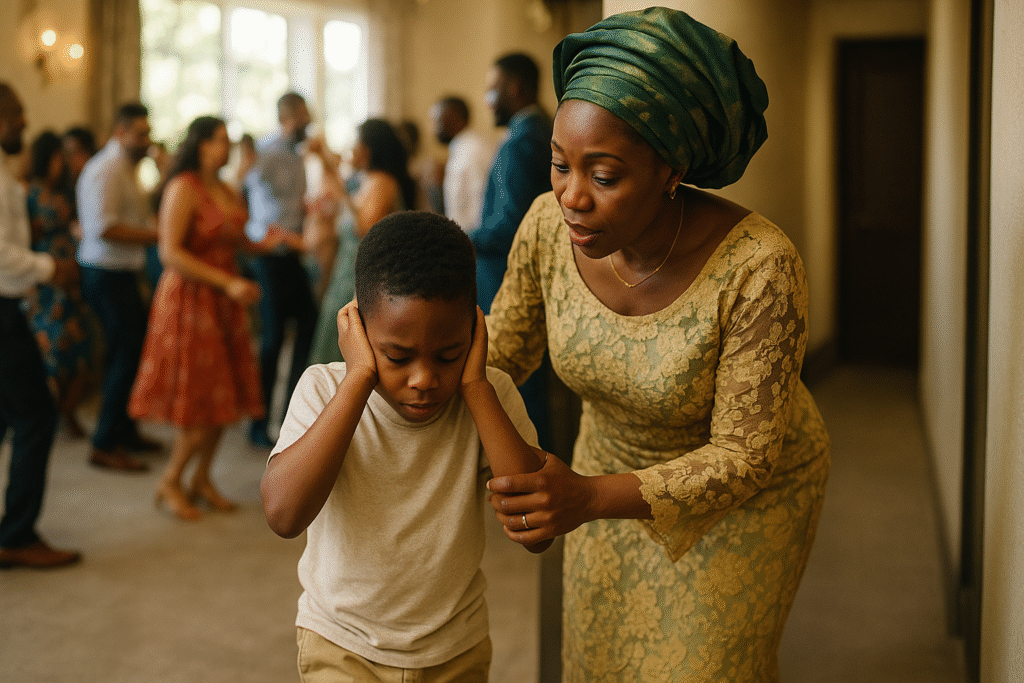Some children feel the world louder—sound, light, touch, taste. After a noisy wedding or a bustling Sunday service, they “act out.” Often it’s not stubbornness; it’s overstimulation.
Signs to notice
- Covers ears often.
- Cries after noisy events or long market runs.
- Refuses certain clothes (itchy tags, tight socks) or textures of food.
- Melts down after parties or big family gatherings.
- Needs silence, not scolding.
What helps in the moment
- Reduce input: Step into a quiet corridor, car, or outside air.
- Slow the body: Deep belly breaths together; count five in, five out.
- Offer predictables: Water, a small snack, favourite soft item.
- Say the feeling: “Too noisy. Let’s take a calm corner break.”
Preventive care
- Pre‑brief: “Jollof, music, many aunties today. If it’s too much, we take breaks.”
- Pick your battles: If the Ankara shirt scratches, let the cotton one win.
- Create a Calm Corner at home: A small chair, soft cloth, picture books, noise‑dampening headphones if possible.
When to seek extra support
If sensory issues affect school, eating, sleep, or friendships most days, talk to your paediatrician. Occupational therapy and school accommodations help. Neurodiversity is real—and support is strength, not shame.
For caregivers & teachers: Swap the word “stubborn” for “overwhelmed.” Watch behaviour soften when children feel understood.

